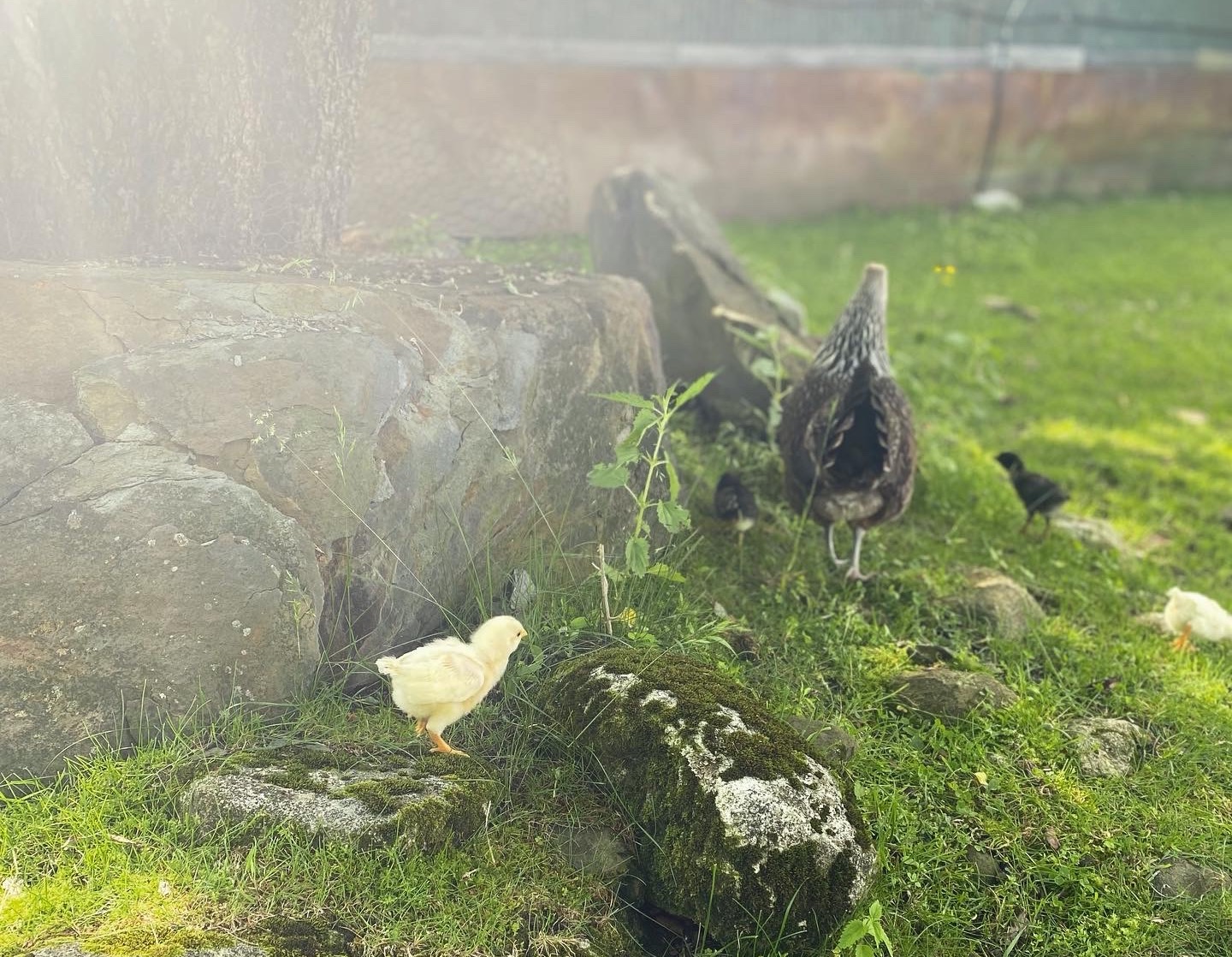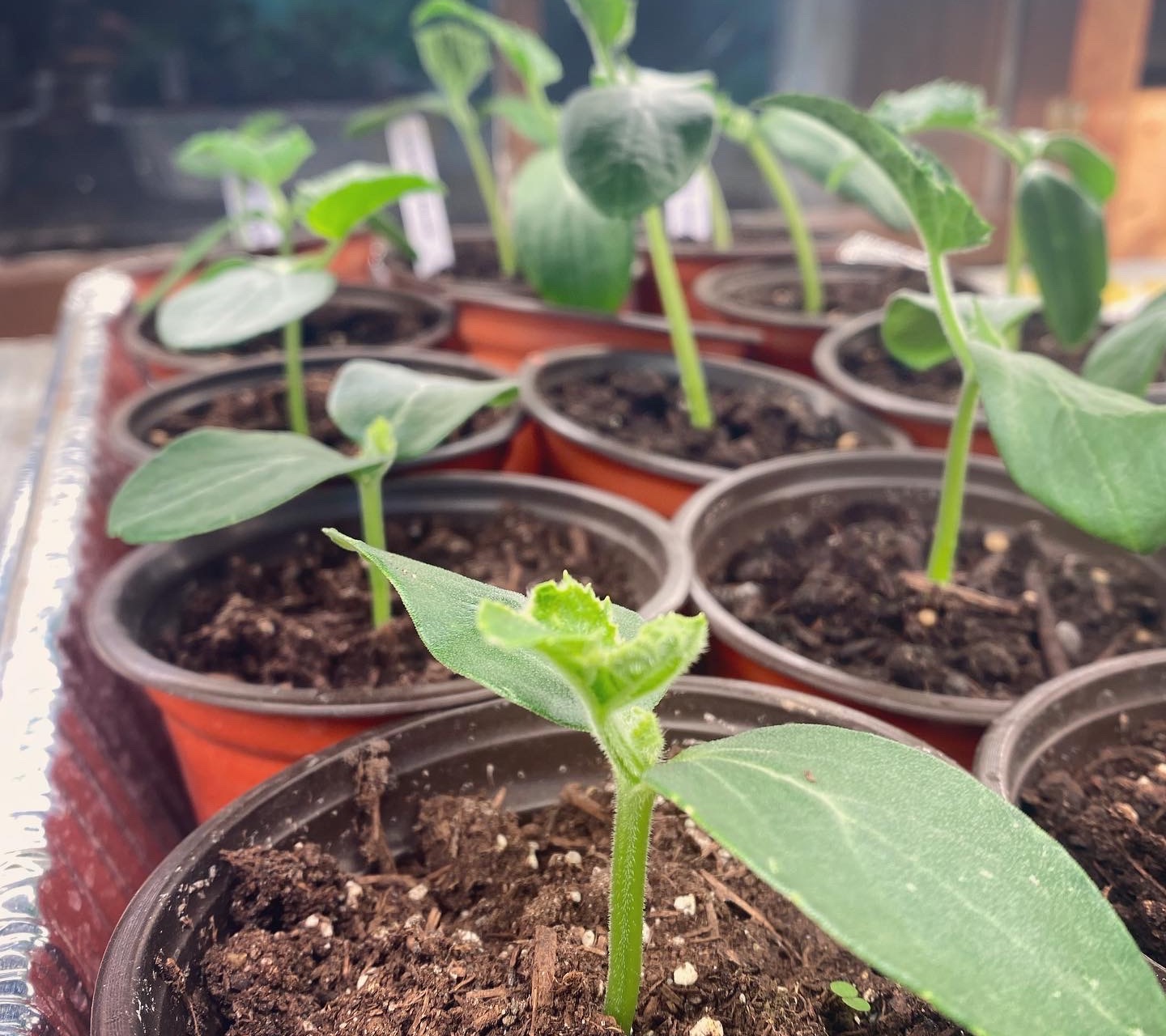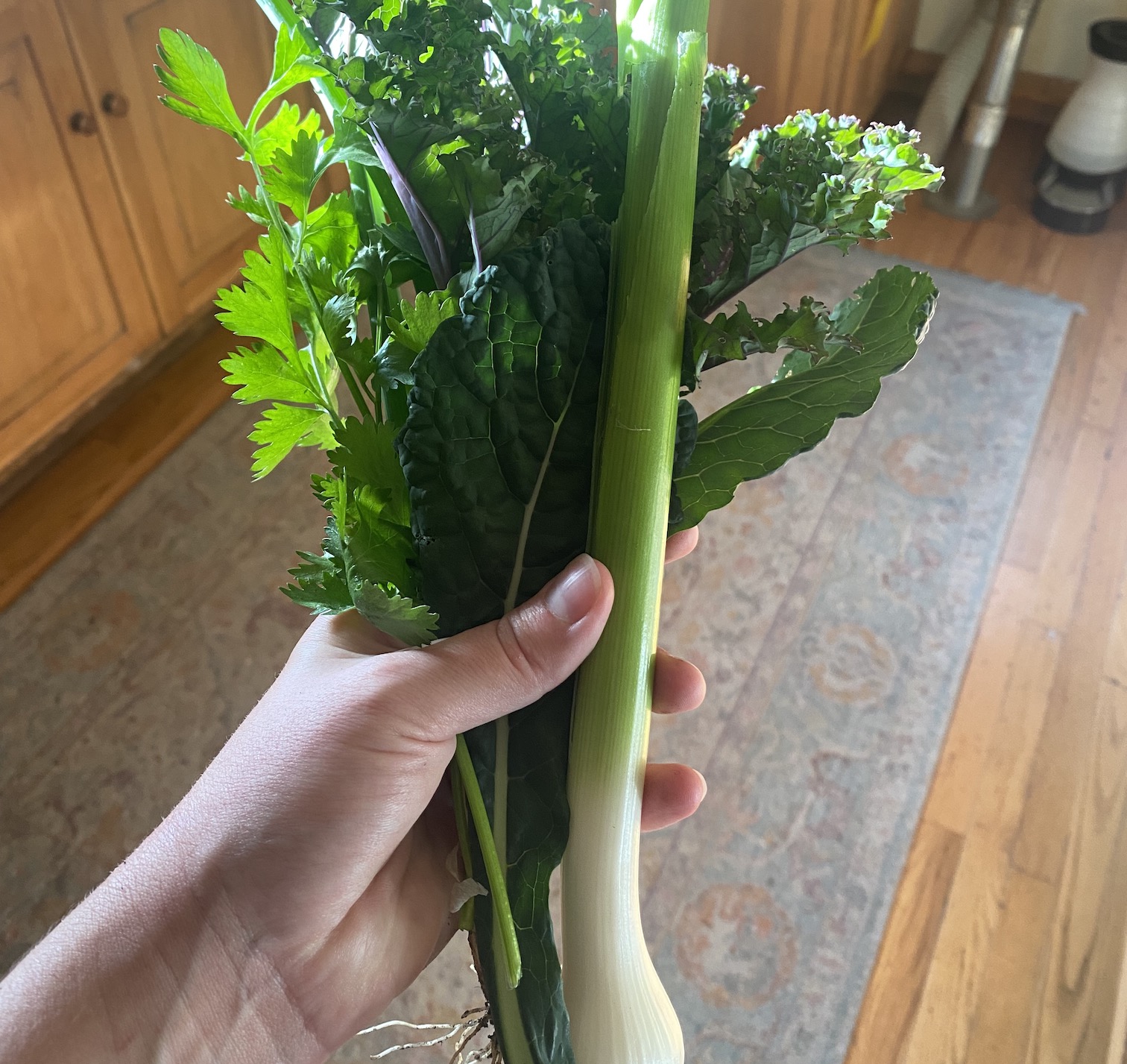June is of my absolute favorite times of year at Sky Meadow. The lupine and cornflowers bloom, the nettle is at its peak for cooking, and the weather is finally feeling summery, but still mild. This June has been a rather rainy one, which has been a blessing after last year’s much drier growing season.
In the pasture, we have some new additions to our menagerie! Four adorable baby chicks hatched in mid-June and all are doing well. At just about two weeks old, they’re still little and we’re keeping a watchful eye on them. But they are able to free range pretty much all day now! Mama Hen is doing a wonderful job keeping them safe, and teaching them essential chicken skills like foraging and dust-bathing. Raising free-range chicks with a broody hen is such a lovely way to expand the flock. I don’t have to worry about teaching them what to eat, how to hide from predators or how to make sure they get enough grit to digest their food — they are able to learn all this naturally through the knowing clucks of their mother. It melts my heart to see how sweet and protective she is with them.

The main vegetable garden is almost entirely planted now! The last thing is to get our cucumber plants in the ground. We intentionally plant these later than everything else, as cucumbers love heat and don’t do well in cold, wet weather. We found that the ones we planted in May have struggled get a strong start and limped along for much of the season. Last year after noticing this issue, we did a second planting of cucumber starts later, in July. Despite going into the ground two months later, the ones planted in July started producing only two weeks after the earlier ones! They also were more robust plants overall and produced superior fruit. If you’re in a cooler climate and have struggled with growing cucumbers, give this a try — you might have much better luck!

In the Three Sisters garden, which we are growing this year in partnership with the Nulhegan Abenaki & NOFA-VT’s Abenaki Land Link program, things are moving along! It’s so lovely being able to work with these precious heritage crops and know that the harvest will help to feed so many neighbors at the end of the season. The Calais flint corn is already just about a foot high, and growing ever more quickly. The Mohawk beans and East Montpelier squash have also germinated and are slowly but surely gaining in size. I expect they’ll really take off in the next few weeks! Last but not least, a row of sunflowers next to the corn/bean/squash mounds will add beauty and draw in pollinators. We planted some quintessential mammoth sunflowers as well as some smaller “evening colors” varieties, and plan to harvest them for sunflower seeds at the end of the season.
This time of year, pest management is crucial, as plants are still small and extra vulnerable to damage. We are fortunate not to be dealing with much large animal pressure (deer and groundhogs, for example) this year. However we do have some insect pressure for certain plants, such as Colorado potato bugs and striped cucumber beetles. Snails and slugs have also become more prevalent in this area, as warming temperatures allow them to venture further north.

As we grow all our crops using organic practices, we don’t use any conventional insecticides to manage pests. Instead, we primarily focus on hand-picking pests off the plants, as well as using companion plants like marigolds to help deter them. This method works best if you start right away and maintain consistency. (Right now, for example, we do a pass through the potato row once or twice a day.) It’s a lot of work, but it’s already made a huge difference, especially with our potato foliage. Last year we were slow to react and ended up with a much bigger infestation (and smaller harvest) as a result. We might occasionally apply an organically-approved spray like BT or spinosad if things are really out of control, but we try to keep this to a minimum to avoid collateral damage to other more beneficial insects.
Like any other area of gardening, there are so many ways to manage pests. So much depends on specifically which pests you’re facing, which crops you have, and the specific growing conditions/weather you’re dealing with. This is one area in which we’ve already learned a ton and know that there is much more still to absorb through experience. (On that note, if anyone else has any hot tips on managing the aforementioned potato and cucumber beetles, please let us know!)
That’s all for June’s update! Hope you’re all enjoying your summer so far. We still have some good availability this season if you’d like to squeeze in a last-minute getaway! Check out our AirBnb page or reach out directly to get started. Solo retreats may also be available (subject to availability around group retreats), so just let us know what you’re looking for and we’ll do our best to help!